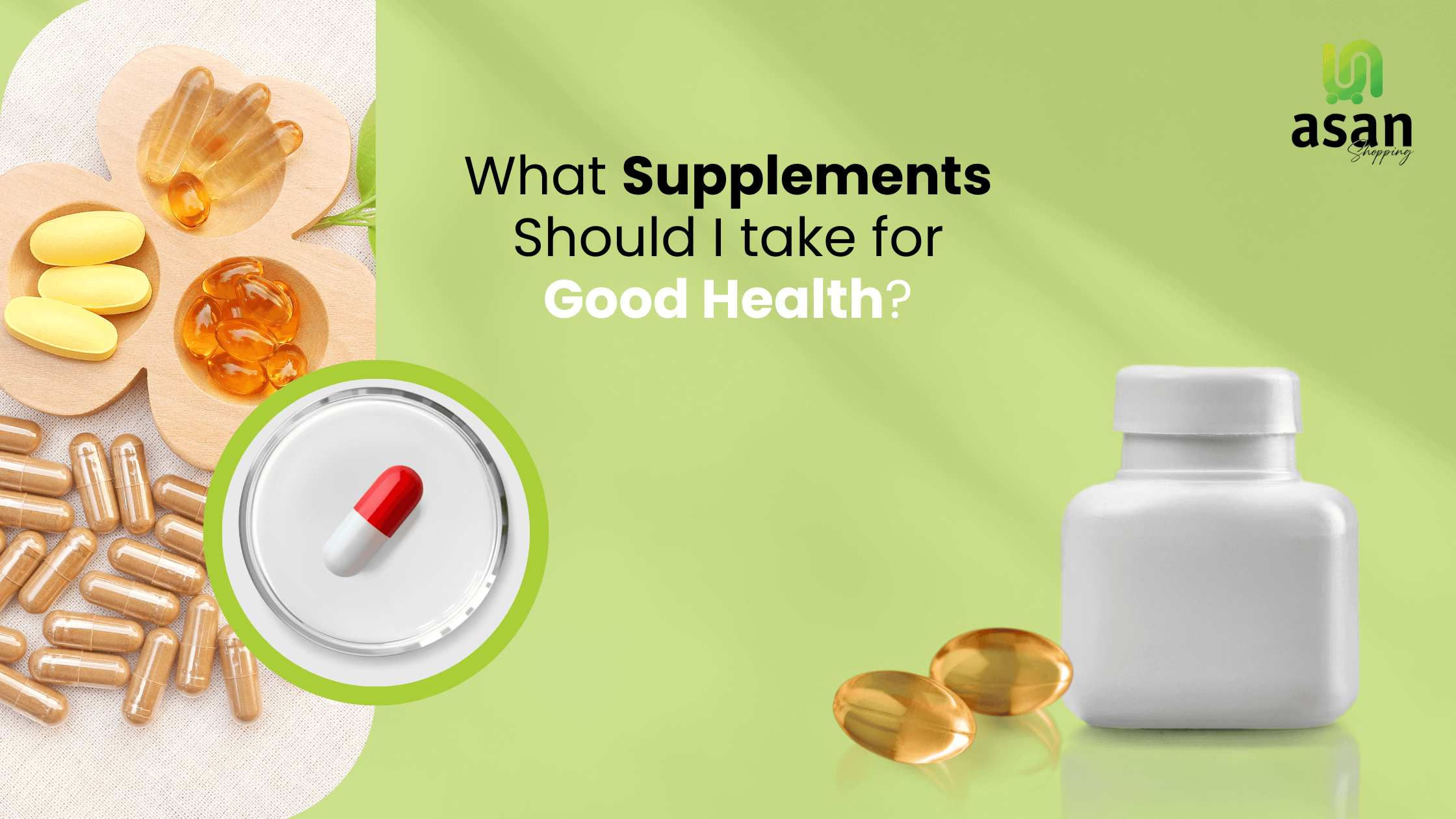The use of dietary supplements has recently gained widespread attention. Roughly half of all adults use some dietary supplement. It’s not hard to see why vitamins and mineral supplements are so popular. People have a legitimate interest in improving their health, and the supplement business has an equally strong interest in increasing its customer base and revenue.
The Food and Drug Administration (FDA) oversees medication safe and effective distribution. The Food and Medicine Administration (FDA) requires manufacturers to provide evidence of a drug’s safety and effectiveness before it can be marketed in Pakistan. It continues to track adverse events even after a drug has been given the green light.
Despite these measures, issues still arise, leading the FDA to pull numerous treatments and mandate harsh warning labels on others. Although our advice varies widely depending on each patient’s unique health profile and set of demands, we offer a few universal suggestions to ensure our patients’ best possible health.
Vitamin Supplements
A high-quality multivitamin is one of the most vital dietary supplements for optimum health. Most, says the Centers for Disease Control and Prevention, cannot get enough of certain nutrients from their diets. According to the CDC’s 2013 survey, just 13.1% ate enough fruit, and 8.9% ate enough vegetables.
Research shows that soil depletion is likely to blame for the reduced nutrient content of today’s fruit and vegetable harvests compared to previous decades. Another investigation found that between 30 and 90 million Pakistanis had vitamin D deficiency, 18 to 20 million had vitamin B6 deficiency, and 16 to 18 million had vitamin C deficiency.
Less than half of persons over 50 had enough vitamin E, folic acid, and magnesium from food alone. Supplementing a healthy diet with a good multivitamin is a great way to ensure that our bodies get all they need to thrive.
Vitamin B12
Vitamin B12 aids in the production of DNA and maintains red blood cells functioning normally. The National Institute of Health reports that it is also helpful in warding off some forms of anemia. Chicken, turkey, salmon, and other seafood, as well as eggs and dairy products, are good vitamin B12 sources/
However, it becomes increasingly difficult for older individuals to get sufficient amounts of vitamin B12 in their diets. Since vitamin B12 is almost exclusively found in animal sources, vegans should take a supplement containing this vitamin 12 in significant amounts.
Omega-3 Fish Oil
Fish oil contains the anti-inflammatory omega-3 fatty acids the body needs. The cardiovascular, respiratory, immune, and musculoskeletal systems cannot operate correctly without adequate amounts of omega-3 fatty acids.
Evidence suggests that omega 3 helps control blood pressure, keep weight in check, keep the immune system running smoothly, boost happiness, and keep the muscles and joints in good shape. Maroon and Bost researched that fish oil supplements were as helpful as most over-the-counter drugs in alleviating neck and lower back pain.
Individuals typically need 500-900mg of omega-3 fatty acid supplementation. Oily fish, such as salmon, anchovies, sardines, and mackerel, should be eaten at least three times a week.
The Magnesium
Magnesium is another crucial vitamin for good health as a cofactor in more than 600 enzyme processes. Seventy-five percent of people, according to the World Health Organization, do not get enough certain nutrients to maintain good health.
Magnesium shortage is associated with eating lots of processed foods, having diabetes or blood sugar problems, and excessive alcohol use. Those who use diuretics or proton pump inhibitors, have gastrointestinal issues, have been on long-term antibiotics, or have a history of these variables are at the most significant risk. Vitamin D metabolism problems, brittle bones, high blood pressure, low blood sugar, irritability, anxiety, muscular cramps and twitches, and weariness may all result from insufficient magnesium intake.
Vitamin D
In Pakistan, it is estimated that 88% of people aren’t getting enough vitamin D in their diets. Even though vitamin D is produced naturally by the body when exposed to sunlight, the sun’s rays are often insufficient to provide the amount of vitamin D the body requires.
The body’s capacity to convert sunlight into vitamin D is diminished by several variables, including less sun exposure in the winter, advancing age, darker skin pigmentation, and the use of sunscreen and clothing that protects the skin from the sun. But we all know how essential Vitamin D is for healthy bones and muscles, appropriate nerve and muscle function, normal inflammation responses, normal blood pressure, and nutritional calcium absorption.
According to research, vitamin D deficiency has been associated with an increased risk of stress fractures, overuse injuries in sports, and upper respiratory tract infections. Vitamin D supplements can reduce the severity of headaches and migraines.
Healthy Microorganisms
Probiotics are vital for gut health since we digest and absorb nutrients via the gut. Probiotics are gut-friendly microorganisms. Harmful bacteria and pathogens may reduce gut function and cause sickness. A healthy gut requires a mix of “good” and “bad” microorganisms.
Bacterial imbalances in the gut may cause nutritional deficits despite a balanced diet and supplementation. But you can balance it with probiotics. They improve immunological function, inflammatory modulation, cognitive health, and weight management. It helps mitigate NSAIDs and antibiotics’ adverse side effects, as well.
Conclusion
The supplements are an excellent method of preserving and enhancing general health. Individualization of your supplement regimen will provide the best results. Finding a supplement that works for you is essential since everyone has a unique set of requirements.

